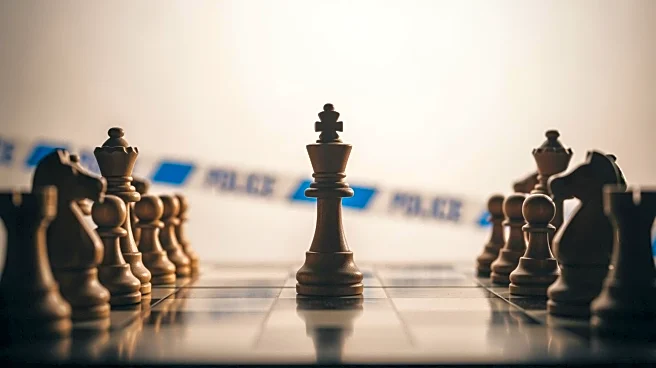What's Happening?
A petition against Russian chess grandmaster Vladimir Kramnik has garnered over 15,000 signatures following his controversial remarks about the late American chess player Daniel Naroditsky. The petition, hosted on change.org, calls for Kramnik's disqualification
and the removal of his honorary titles. This backlash stems from Kramnik's accusations in the summer of 2024, where he alleged that Naroditsky engaged in cheating during games. Following Naroditsky's death on October 20, at the age of 29, Kramnik publicly commented on the circumstances, suggesting that Naroditsky's circle was partly to blame. These statements have sparked significant criticism on social media, with many feeling that Kramnik's comments may have contributed to the tragic outcome. In response to the growing backlash, Kramnik has expressed his intention to defend his reputation in court.
Why It's Important?
The situation highlights the intense scrutiny and potential consequences public figures face when making controversial statements, especially in the sensitive context of a person's death. The chess community, known for its emphasis on integrity and sportsmanship, is particularly sensitive to allegations of cheating and the reputations of its players. The petition's rapid accumulation of signatures indicates a significant public sentiment against Kramnik's actions, reflecting broader societal expectations for accountability and respect. This incident could influence how public figures in the chess world and beyond approach discussions about their peers, especially in matters involving serious allegations and personal tragedies.
What's Next?
As Kramnik prepares to defend his reputation in court, the legal proceedings could set a precedent for how similar disputes are handled in the future. The chess community and the public will likely follow the case closely, as it may impact Kramnik's career and legacy. Additionally, FIDE's review of the statements concerning Naroditsky could lead to further actions or policy changes within the organization. The outcome of these developments may influence how the chess community addresses issues of conduct and public discourse among its members.

















